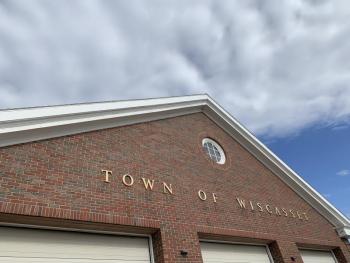Creating options for town sewer’s future
As Wiscasset faces possibly moving its sewer plant and how moving or not moving it could impact rates, selectmen are seeking to expand the town’s options: March 7, the board agreed to request Wiscasset Water District propose its charter allow sewer services.
The charter change would not commit the town to turning over sewer services to the district, Town Manager Dennis Simmons said in the meeting at the town office, over Zoom and YouTube, and in a same-day note to the board. “It simply allows for the option down the road and saves from having to make another charter change later. It is just a matter of convenience. I urge you to approve the requested change,” he wrote.
The note touched on potentially costly times for the sewer department and the town. “We are all too well aware we are faced with some serious decisions regarding our wastewater treatment plant and its present location,” Simmons wrote. (Maine Department of Environmental Protection) initially agreed to the plan to upgrade the (plant) and make it resilient to sea level rise and storm surge by adding a seawall around it. They have since backed off from that stance and have now included the federal (Environmental Protection Agency) in on the discussion.” So far, the EPA has said the plant is in a flood plain, and that newly published rules would bar the EPA from helping fund a plant in a flood plain, Simmons continued.
He added in the meeting, “We’re talking tens of millions of dollars here. That’s something that the town’s just not going to be able to do on its own.”
Simmons’ note read: “So it is appearing more and more likely we will be forced to relocate the plant. Given this fact I, the select board and ultimately the voters will have to consider the impact this will have on the town and the sewer rate payers and consider all options. One ... might be for the town to get out of the wastewater business altogether and turn the operation over (to) a utility district. This can be a stand-alone district (or) a combined district with the water (district, which) is in the process of making some changes to its charter, so if any possibility exists that the town may wish to pursue this option, now would be the time to add language to their charter allowing them to provide the service.”
According to a Feb. 21 letter from Maine Rural Water Association Director Kirsten Hebert to Simmons, the charter work stems from Wiscasset Water District’s preparing, as part of a regional water council, to grow and preserve the public drinking water supply.
Hebert said the town is in a “unique position” to ask the district for the charter change making sewer services part of what the district can provide.
“While this does not mean that the Water District would then take over the Wiscasset Sewer Department, it would, however, provide the town with options,” including the right to contract with the district for services, the water district becoming authorized, via referendum, to own/operate the department’s assets, “or any combination thereof,” Hebert wrote.
Simmons told selectmen a charter change would need approval from Maine’s Legislature. Without comment or questions, the board voted 5-0 to ask the district for the charter change.
Wiscasset Newspaper has sought comment from Wastewater Treatment Plant Superintendent Robert Lalli and Wiscasset Water District Superintendent Chris Cossette.
Also March 7, selectmen named Steven Christiansen to the cemetery committee and Cecilia Ludwig and Stephen Ludwig to the appearance of the town committee; nodded a liquor license renewal for Maine Tasting Center, 506 Old Bath Road; and made plans to discuss a possible town vote to partly fund the broadband project for which Consolidated Communications may seek Maine Connectivity Authority funding later this year. The discussion, on what and when to possibly ask voters, will be part of a 6 p.m. March 14 budget session.
Reviewing the audit for the fiscal year that ended June 30, 2021, Fred Brewer told the board the $1.7 million fund balance is about enough to cover a month and a half’s bills. Two months’ worth is the rule of thumb, he said. “You guys have made a lot of headway.”
























